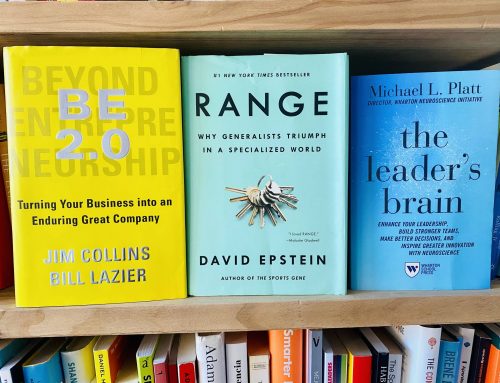In the two types of organizations that I mainly work with (corporations and sports teams), helping them to give feedback to their teams is equally important, yet the process occurs in clearly different ways. Sport has the peculiarity that those who receive feedback are usually more powerful than those giving it; either because they are the ones paying the boss -such as the case of tennis, where players act as employers and hire their coach-, or because they have the capacity to influence on the leader’s destiny -such as in team sports, where athletes can easily make their coach get fired-. And to make matters worse, in both cases the workers make way more money than the boss. If we can successfully instill a feedback culture in this difficult context, it is obvious that we can achieve it in any other discipline and context.
Here are four keys to deliver a successful feedback:
1) Self-awareness
The first key to helping our teams doesn’t lie in them but in us; in knowing ourselves. More. Therefore, before learning to give feedback we must learn to receive it. A good measurement of our effort to gain self-awareness is to think about the last time we laughed at ourselves in public. Taking our complexes one by one and destroying them in public is one of the healthiest habits we can have.
Would you trust someone who is perfect in someone who is human? People don’t want perfect bosses, they want human bosses, vulnerable leaders who are imperfect.
“Perfect is the enemy of good” Voltaire
“Vulnerability is not winning or losing; it’s having the courage to show up and be seen when we have no control over the outcome.” Brené Brown
2) Change the focus from yourself to the other person
There is a must in the feedback process: that you care about the other person. Simple yet we often times forget about this…
Since feedback is autobiographic -it speaks more about who gives it than those receiving it-, we will need to make an effort at communicating from their frame of reference and not from ours. We will focus on listening to understand, not to respond.
“Examine what is said not who said it” (Arab proverb)
Likewise, we cannot have empathy for something we don’t know. It is therefore essential to dig a bit deeper in what the other person is not just saying and doing but also feeling, in their fears and frustrations, in what motivates them or blocks them…
3) Formal vs informal Feedback
Let’s avoid the mistake of seeing feedback just as formal feedback (like the annual performance assessment). Informal feedback is even more powerful than the formal one because it permeates naturally and almost unconsciously, like our values. We can see it in the small daily behaviors that we show and that our people see in us. They will value this type of feedback more because it acts as mentoring, it is more generous (it goes beyond the mandatory annual meetings), it avoids the snowball effect of a problem, and it is more regular and spontaneous. Isn’t it better to tell our partner “I love you” instead of “tomorrow at 11 am I’m going to tell you that I love you”. We cannot force feedback.
4) “Suggest” vs “indicate”
Suggesting has always a stronger impact in achieving their commitment than directly indicating a change in a behavior. Here’s how we can address it:
-“I wonder if…”
-”I wonder if this would help you…”
-“Do you think doing it in this other way could be a solution for you”?
Besides focusing on suggestions, it is important to practice positive feedback (reinforcement), not only because it is easier for us and will make the other person be more open, but also because it increases the likelihood of them repeating the positive behavior. For instance, if we tell our child or partner “you are very disorganized”, their behavior will continue the same because in doing so they will confirm the expectation we have on them (that they are disorganized). If we instead congratulate them when they do something well (such as saying “I’ve seen you have organized the bookshelf, it looks great!”), we will reinforce their positive behavior and increase their success likelihood in the future. This positive feedback will boost their confidence and create more positive outcomes.
By developing these four simple actions we will get much closer to having feedback as a core element of our organization’s culture.
Feedback is the Breakfast of Champions (Ken Blanchard)
Enjoy breakfast.
Pedro Díaz Ridao







Leave A Comment